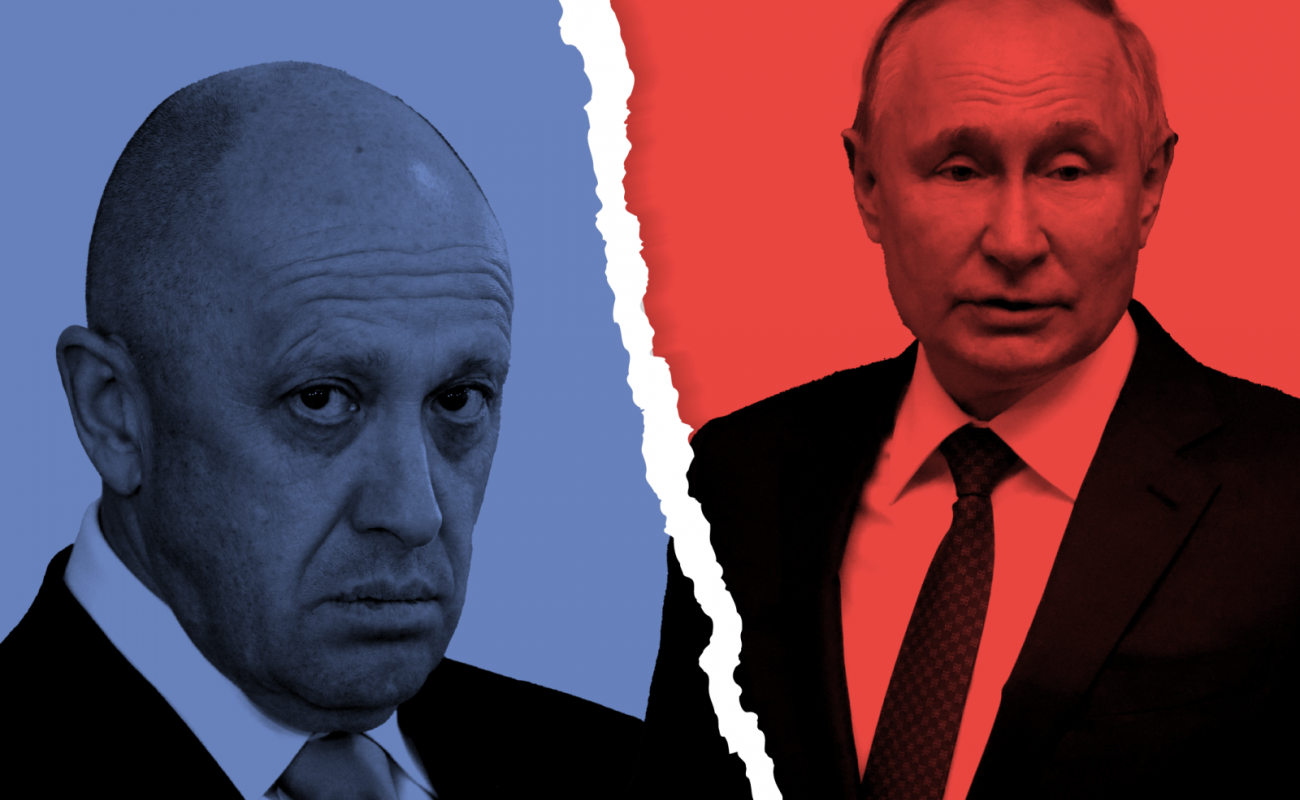Prigozhin sent a signal to Putin. What is happening in Russia?

Both in Russia and here, they are actively discussing the interview of the head of PMC Wagner, Yevgeny Prigozhin, with Russian propagandist Dmitry Dolgov. This interview is being cited and analyzed in different ways and contexts. And, of course, it is fascinating and instructive material in political and psychological terms. I perceive this interview as a diagnosis, and from several different angles. Prigozhin recognized the failure of the so-called Special Military Operation regarding the two main goals announced by Putin on February 24 of last year - the denazification and demilitarization of Ukraine.
He also directly acknowledged that the “Operation” actually did the opposite of what Russia hoped for. Here are direct quotes: "We made Ukraine a nation everyone knows around the world…As for demilitarization: if they had 500 tanks at the beginning of the special operation, now they have 5,000 tanks, and if they used to fight skillfully with 20,000 people, now there are 400,000. How did we demilitarize it? It turns out to be the opposite."
Another diagnosis from Prigozhin - Russia will not win this war
Much more important is that Mr. Prigozhin complained that this war of Russia against Ukraine is advantageous for Ukrainians but unjust and predatory for Russia. This can be easily read in the assessments and epithets of the actions of both countries. Some direct quotes: "What have we done? We came in rudely and walked over the territory, searching for Nazis. While looking for the Nazis, we beat up everyone we could." "We started this fight." "All that we've already grabbed is ours, and everything we haven't grabbed is not ours."
Another diagnosis from Prigozhin - Russia will not win this war: "There are optimistic and pessimistic scenarios. I don't believe in the first one much. That Europe and America will get tired of the Ukrainian conflict. China will sit everyone down at the negotiating table. We will agree that everything we've already grabbed is ours, and everything we haven't grabbed is not ours. This scenario is unlikely."
"The pessimistic scenario: Ukrainians are given rockets, they prepare their troops, they will undoubtedly continue the offensive, try to counterattack. Perhaps a counteroffensive will occur somewhere successfully, they will restore the borders to 2014, and it can easily happen. Then, they will attack Crimea, try to blow up the Crimean bridge, and cut off supply lines.
I would very much like Mr. Orban, who is still convinced that Russia cannot be defeated, to read Priogzhin's interview.
From the point of view of diagnosing moods in Russian society, the anti-elite pathos of Prigozhinsky's rhetoric is very significant. There is so much swearing directed toward the Russian elite and their offspring that I won't quote it. But, surely, Prigozhin is not alone in this. He reflects and resonates with the mood on both the front and among many behind it, especially among the so-called "war party." Although some Kremlin commentators have already included Prigozhin in the "peace party,” I think it's an exaggeration. He was and remains a man of war and a "soldier of fortune." Judging by the content of the interview, he respects Ukrainians, especially the Ukrainian army, as a strong and worthy opponent. But for him, Ukraine is a situational opponent, like in sports. Once Putin started fighting against Ukraine, it meant that we should be a part of it.
The primary opponent of Prihgozhin is precisely the Russian elite. That's whom he hates with all his heart. And threatening hints are already breaking through: "We are a full-fledged army. So why weren't we allowed in? This happened because of intrigue, because of fear that when some structure grows, it can begin to dictate conditions and conditionally come to Moscow on tanks…This split can end in a revolution like in 1917, when soldiers first stood, and then their loved ones stood up…And everything will end with St. Bartholomew's Night in one moment. The abundance of the children of the elite will end up with people raising pitchforks against them." But despite all his aggressive anti-elite pathos, Prihgozhin sends signals of loyalty to Putin: "My political creed: I love my homeland, I obey Putin, Shoygu should leave, and we will continue to fight.
Prihgozhin is a paradoxical character - Steenka Razin and Malyuta Skuratov in one person. A loyal Putin Oprichnik who is ready to fight internal enemies and turn Russia into North Korea (literally, in his own words). But in reality, he wants to turn all of Russia into a giant Wagner PMC. But where is Putin's place in all this?
